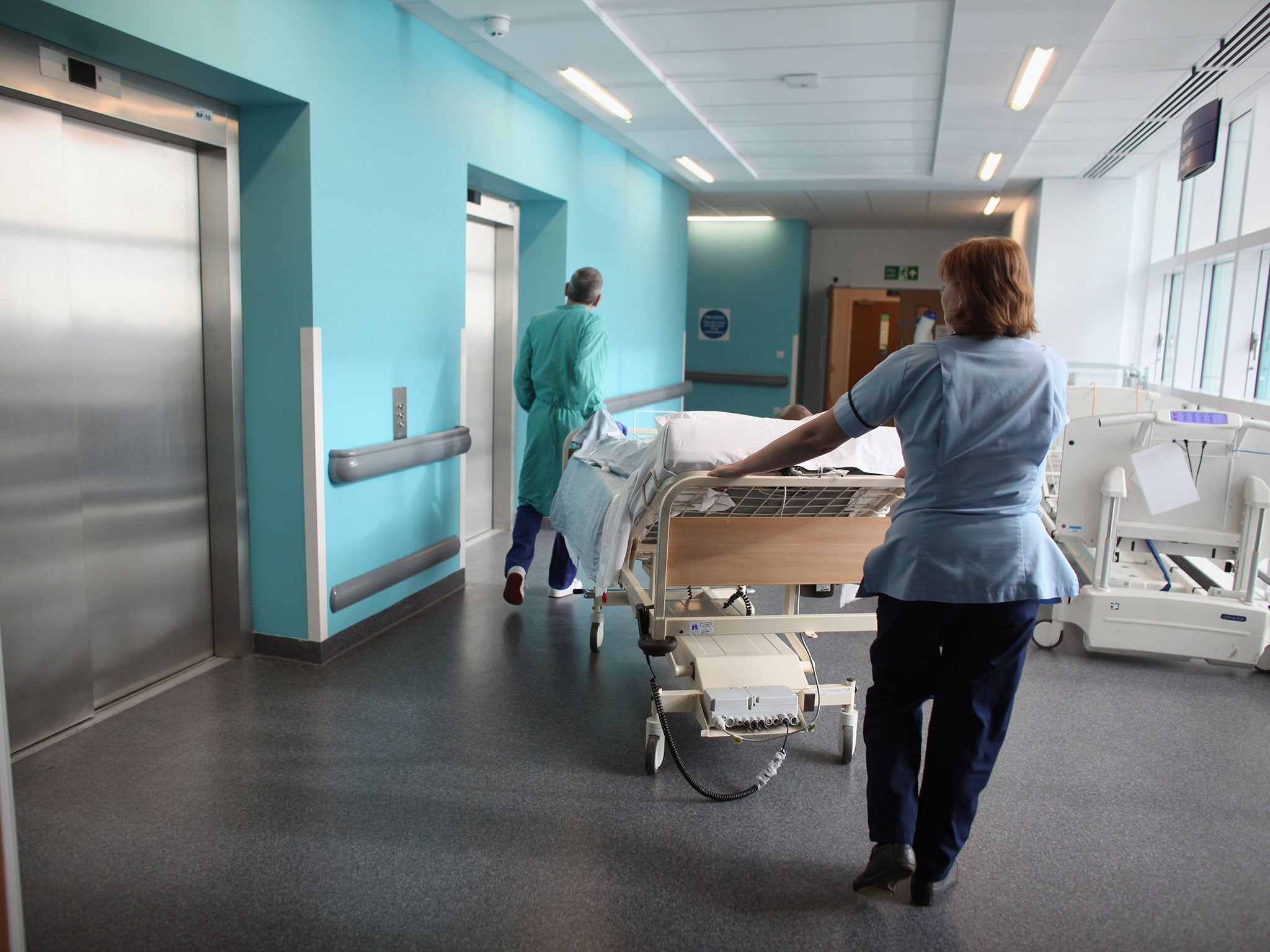Two patients die from starvation or thirst each day in UK hospitals and care homes, say statistics
Theresa May has rejected a warning from British Red Cross that hospitals are facing a 'humanitarian crisis'

Your support helps us to tell the story
From reproductive rights to climate change to Big Tech, The Independent is on the ground when the story is developing. Whether it's investigating the financials of Elon Musk's pro-Trump PAC or producing our latest documentary, 'The A Word', which shines a light on the American women fighting for reproductive rights, we know how important it is to parse out the facts from the messaging.
At such a critical moment in US history, we need reporters on the ground. Your donation allows us to keep sending journalists to speak to both sides of the story.
The Independent is trusted by Americans across the entire political spectrum. And unlike many other quality news outlets, we choose not to lock Americans out of our reporting and analysis with paywalls. We believe quality journalism should be available to everyone, paid for by those who can afford it.
Your support makes all the difference.At least two patients die of hunger or thirst every day in UK hospitals and care homes, according to data from the Office for National Statistics (ONS).
Malnutrition or dehydration were mentioned on the death certificates of 726 patients who died in hospital in 2015 – and of 130 more who passed away in care homes.
In hospitals, 297 patients died of starvation and 429 of dehydration, while in care homes, 54 died of hunger and 76 of thirst, reported The Sun.
Theresa May has rejected a warning from British Red Cross that hospitals are facing a “humanitarian crisis” after the organisation stepped in to support the overstretched health service.
The Prime Minister acknowledged the NHS was under pressure but told Sky News the Government was addressing the issue of an ageing population, adding that health funding was at record levels.
According to the ONS, fewer people are dying of hunger and thirst in hospitals and care homes than in 2005, when more than 1,000 such deaths were recorded – but charities have called the current figures “horrifying”.
“It’s horrifying to think that older people are dying because they haven’t had enough to eat or drink in care homes and hospitals,” said an Age UK spokesperson.
Mark Porter, council chair of the British Medical Association, said spiralling patient numbers and the lack of additional funding provided for health and social care meant the service was still struggling in real terms.
“We have seen no signs from the PM since taking office that she understands the gravity of the situation the NHS is facing,” he said.
“As lack of beds and inadequate social care funding has prompted the Red Cross to declare a humanitarian crisis in our hospitals, Theresa May cannot continue to bury her head in the sand as the situation in our NHS and social care sector deteriorates.”
Health Secretary Jeremy Hunt also sparked anger by claiming there are only problems at “one or two hospitals” despite claims of unbearable pressure on NHS services.
He made the comments after it emerged that the Red Cross is stepping in to support services in 20 accident and emergency departments.
Mr Hunt instead sought to explain wider pressure by saying the public should realise when it is not appropriate to go to A and E for a problem more appropriate for a visit to a GP.
“Jeremy Hunt on [Radio 4] saying ‘vast majority’ of hospitals coping better this year. Which hospitals has he been visiting? Not North London,” tweeted Labour MP David Lammy following the Health Secretary’s comments to the BBC.
Mr Hunt was confronted with news that there are now more than a dozen hospitals that have 100 per cent of their beds in use, whereas over the last five years there has never been a three month period where more than one hospital was at full capacity.
Join our commenting forum
Join thought-provoking conversations, follow other Independent readers and see their replies
Comments